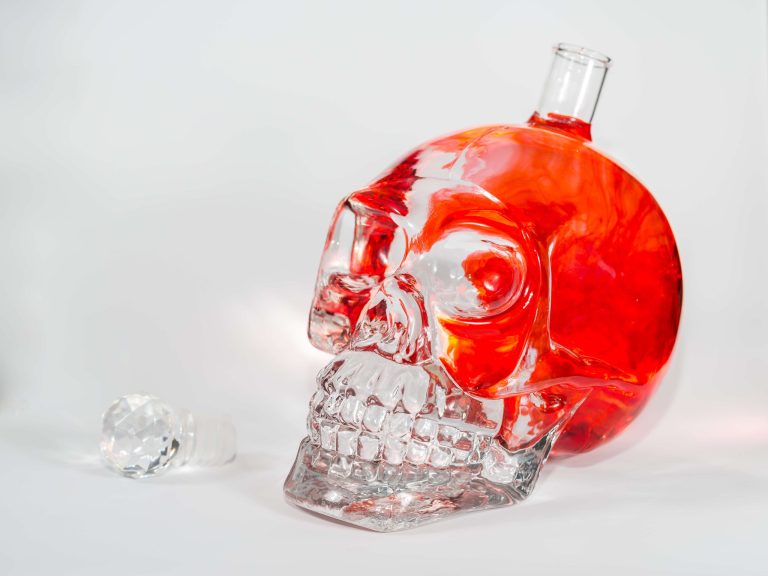Types of Counseling Certifications
by siteadmin
The experience requirement is also lower than what is required of other certificate holders as applicants need only 200 hours of direct practice in a peer recovery environment. A supervisor must verify that experience and then an additional 60 contact hours in academic training substance abuse counseling is required. Of that, 48 hours must be in the fields of case management, community/family education, screening/intake, or basic pharmacology, among other topics. The remaining twelve hours should be split between ethics training and HIV/other pathogens education.

Counselors with the LCSW designation typically have the goal of helping their patients improve their mental health as well as their social function. If you choose to become a licensed clinical social worker (LCSW), you’ll first receive extensive training in how to identify and diagnose different mental health disorders, as well as behavioral disorders. Your training will also equip you to develop plans for treating and preventing these disorders. As counseling certificates are academic in nature, these programs are generally offered by colleges and universities.
What Does an LADC Do? The Essential Role of LADCs
Those who earn the AFC credential must renew every two years by completing at least 30 continuing education units. Eligibility requirements include a master’s degree or higher in counseling from a CACREP-accredited program. Once deemed eligible, applicants must pass either the National Counselor Examination (NCE), the National Clinical Mental Health Counselor Examination (NCMHCE). Those who earn the NCC designation will have to recertify every five years and complete a regular amount of continuing education each year. Yes, pursuing LADC licensure or certification involves costs, including tuition for educational programs, fees for the examination, and any required continuing education.
Effective preparation for the LADC licensure exam involves studying relevant coursework, participating in clinical experiences, and using exam review materials. Consider enrolling in review courses, using practice exams, and seeking guidance from experienced counselors. A Certified Clinical Supervisor (CCS) is a credential that demonstrates an individual’s advanced knowledge, skills, and abilities in the field of clinical supervision.
Is specialty certification better than just licensure?
Applicants will need a bachelor’s degree or higher with a concentration in recreational therapy, along with a 560-hour internship supervised by a CTRS. Alternate equivalency paths are available through verifiable coursework and work experience. Once deemed eligible, applicants will need to pass a three-hour, 150-question NCTRC exam. Those who earn the CTRS designation will need to recertify every five years through the completion of at least 50 hours of continuing education. In either case, it is important to understand that having a certificate does not guarantee success in the field of drug and alcohol counseling. A successful counselor must possess certain qualities such as empathy, compassion, patience, resilience, good communication skills, and an understanding of addiction treatment theory and practice.

The experience requirement is also lower than what is required of other certificate holders as applicants need only 200 hours of direct practice in a peer recovery environment. A supervisor must verify that experience and then an additional 60 contact hours in academic training substance abuse counseling is required. Of that, 48 hours must be…
Recent Comments
Archives
- May 2024
- April 2024
- March 2024
- February 2024
- January 2024
- December 2023
- November 2023
- October 2023
- September 2023
- August 2023
- July 2023
- June 2023
- May 2023
- April 2023
- March 2023
- February 2023
- January 2023
- December 2022
- November 2022
- October 2022
- September 2022
- August 2022
- July 2022
- June 2022
- May 2022
- April 2022
- March 2022
- February 2022
- January 2022
- December 2021
- November 2021
- September 2021
- August 2021
- July 2021
- June 2021
- May 2021
- April 2021
- March 2021
- February 2021
- January 2021
- December 2020
- November 2020
- October 2020
- September 2020
- August 2020
- July 2020
- June 2020
- May 2020
- April 2020
Categories
- ! Без рубрики
- ¿Cómo retirar dinero de 1xbet? Guía completa 2023 121
- 1w
- 1win Azerbajany
- 1Win Azerbaycan Rəsmi Veb Saytı İlk 2100 AZN-ə Qədər Bonus 427
- 1Win Brasil
- 1WIN Official In Russia
- 1winRussia
- 1xbet apk
- 1xbet Argentina
- 1xbet Azerbajan
- 1xbet Azerbaycan,1xbet az merc saytı, en yaxsi bukmeker 1xbet Azerbaycan merc oyunlari, 1xbet az, Azerbaycan merc saytlari 667
- 1xbet Azerbaydjan
- 1xbet Brazil
- 1xbet giriş
- 1xbet Kazahstan
- 1xBet Mobile Vebsayt Və 1x Bet Mobil Uygulama Indir 2023 162
- 1xbet qeydiyyat
- 1xbet Russian
- 1xbet: Azərbaycan Mərc Saytı 1xBET Az, 1xbet mobi 2023 265
- 5.03-2
- 50 Darmowych Spinów na Book of Dead w Vulkan Vegas 100
- AI News
- Android, iOS platforması üçün 1win proqramı yükləmək Pulsuz Quraşdırma 113
- Aviator oyna və qazan Rəsmi sayti Aviator Azerbaycan 720
- AZ Most BET
- Azerbajany Mostbet
- Azərbaycan mərc saytı 550
- b1bet apostas
- Bahsegel giris
- Betmotion brazil
- Betsat
- Bettilt casino
- Betting company MostBet app online sports betting 932
- blog
- Bonus Vulkan Vegas: kody rejestracyjne + promocje bez depozytu 34
- Bonus Vulkan Vegas: kody rejestracyjne + promocje bez depozytu 810
- Bookkeeping
- Bootcamp de programação
- Bootcamp de programación
- casino
- Casino Online
- Casino Pin UP Pin-up Casino Resmi Sitesi Türkiye Giriş ve Kayıt Çevrimiçi – 352
- Casino sitesi
- Codere Argentina
- Codere Italy
- Crypto Trading Apps The Best Cryptocurrency Trading Apps 2023 691
- Cryptocurrency exchange
- Cryptocurrency News
- Education
- FinTech
- Forex Trading
- Generative AI
- Hızlı kazançlar ve iyi tatiller için en iyi Mostbet casino 908
- Home Improvement
- Immediate Edge Australia Review 2023 Is it Legit or Scam? – 962
- India Mostbet
- IT Vacancies
- IT Образование
- Kasyno Online Vulkan Vegas ️ Najlepsze Polskie Kasyno 719
- LeoVegas Finland
- LeoVegas India
- LeoVegas Irland
- LeoVegas Sweden
- MA in Computational Arts blog ¿cuál Ha Sido El Código Promocional De 1xbet Argentina? Bono 2023 251
- Mail Order Brides
- mostbet apk
- mostbet az 90
- MostBet AZ Most Bet Casino Qeydiyyat, Yukle Android App 914
- Mostbet AZ Mostbet AZ Azerbaycan casino 978
- Mostbet Azerbaijan
- Mostbet Azerbaycan
- Mostbet Casino TR nasıl giriş yapılır, online casino oyunları ve slotlar, kullanıcılar için mevduat yöntemleri 238
- Mostbet Casino TR nasıl giriş yapılır, online casino oyunları ve slotlar, kullanıcılar için mevduat yöntemleri 29
- Mostbet dən pis bukmeker kontorunun əlamətləri Təhsil Portalı 441
- mostbet giriş
- Mostbet in Turkey
- Mostbet India
- MostBet India Review 2023 Don't Miss Your 25,000 Bonus 23
- Mostbet indir Android APK, iOS için Türkiye ️ Uygulaması nasıl indirilir 220
- Mostbet kayıt: promosyon kodları, bonuslar, ücretsiz bahisler 352
- mostbet kirish
- MostBet Mobile App və Bukmeker Şirkətinin Mobil Versiyası 498
- mostbet oynash
- mostbet ozbekistonda
- Mostbet Promo Kod Azərbaycanda Mostbet Promosyon Kodu 163
- Mostbet promo kod ᐈ Bonusları və Promo-Aksiyalar Mostbet casino AZ 718
- mostbet royxatga olish
- mostbet uz
- mostbet uz kirish
- Mostbet Uzbekistan
- mostbet-ru-serg
- New
- News
- NLP algorithms
- Odkryj Emocje Związane z Grami Online 509
- Online dating
- oyunu sındırmaq mümkündürmü? 238
- pagbet brazil
- Paribahis
- Pin Up Casino nun rəsmi saytı Bonus 700 AZN + 250 frispin 939
- Pin Up Online Casino Azerbaycan ️ Onlayn Kazino PinUp Rəsmi Saytı 569
- Pin Up Peru
- Pin Up yüklə Android cihazları üçün Pin Up bet indir BUP Human Resource and Leadership Club – 60
- PinUp apk
- pinup Brazil
- Potenzmittel
- Puerto Rico REALTORS® MLS Mostbet Türkiye Güncel Giriş Adresiyle Karşınızda! 836
- Sober living
- Software development
- test3
- Təyyarə oyunu 1win 1win Aviator game 679
- Türkiye'nin En İyi Online Bahis Şirketi 617
- Uncategorized
- UZ Most bet
- Vulkan Vegas Bonus im Juli 2023: 200 % bis zu 1 000,00 EUR 171
- Vulkan Vegas Bonus und Promo Code 2022 Bonusprogramm 154
- Vulkan Vegas Casino Bonus 1500 Promo Code 2023 279
- Vulkan Vegas Casino Bonus ohne Einzahlung 25 Euro 555
- Vulkan Vegas DE
- vulkan vegas DE login
- Vulkan Vegas Opinie Forum 800
- Vulkan Vegas Poland
- VulkanVegas Poland
- Вопросы И Ответы Про Бк Mostbet Gəlinlik, Gəlinlik Modelleri, Gəlinlik qiymətləri 404
- казино
- Криптообменники
- Мостбет официальный сайт букмекерской конторы Mostbet 120
- Мостбет Уз Ставки на спорт и казино в букмекерской конторе Mostbet Uz 157
- Новости Криптовалют
- Онлайн казино Mostbet играть в Aviator Spribe 716
- Финтех
- Форекс Брокеры
- Форекс обучение
- Форекс партнерская программа
